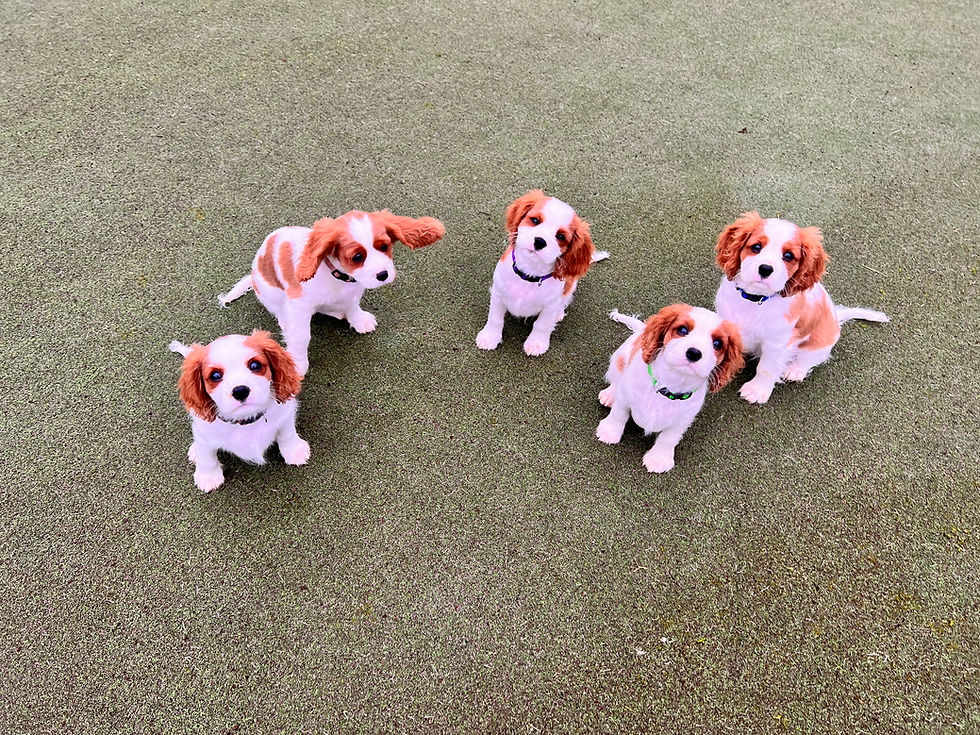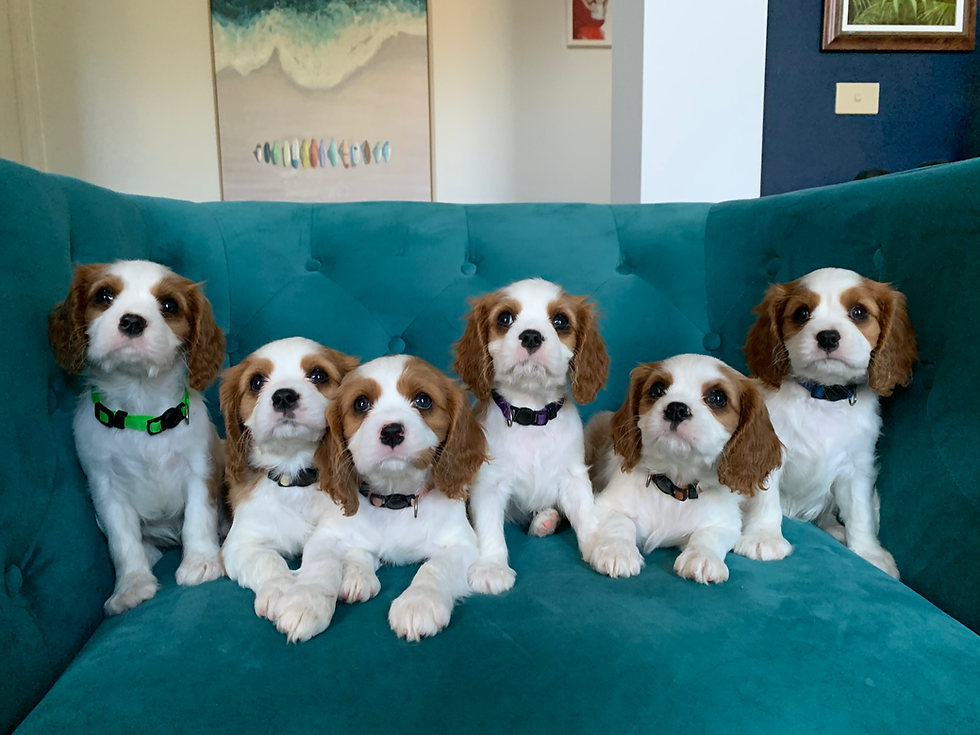Best tips for toilet training your Cavalier puppy
- Jul 27, 2025
- 2 min read
Updated: Jul 27, 2025
When your puppy comes home to a new environment toilet training starts immediately

Cavalier puppies from La Rose Cavaliers have been started on good toileting routines, but they will still require consistent, predictable toilet training once home. Here is a guide to help you with the process.
1. Create a Predictable Toilet Routine
Take your puppy to the same toilet spot:
First thing in the morning
After every meal or drink
After naps or crate time
After play or excitement
Last thing before bed
Every 1–2 hours in between (especially under 12 weeks)
📝 Tip: Set a phone timer or use a toilet training app for reminders.
2. Use a Cue Word
Pick a phrase like "go potty" or "do your wee-wees" and say it calmly just as they start toileting. Repeat it consistently — this builds a lifelong association.
3. Reward Immediately
Praise enthusiastically as they finish, not after you return inside. Use:
Happy voice: “Good toilet!”
A small treat (keep some in your pocket or treat jar near the door)
🛑 Never punish accidents — it causes anxiety and delays learning.
4. Supervise Indoors Constantly
Keep your puppy in the same room as you
Use baby gates, crates, or a lead tethered to you
Watch for signs: circling, sniffing, squatting, suddenly quiet
5. Interrupt Accidents (Gently)
If you catch them in the act:
Calmly say, “Uh-oh!” or “Outside!”
Pick them up and take them straight to their toilet spot
Praise if they finish there
❌ Never scold or rub their nose in it — it teaches fear, not learning.
6. Clean Accidents Thoroughly
Use an enzyme cleaner to remove odours completely — regular cleaners won't do the trick, and leftover scent encourages repeat accidents.
7. Use Crate Training to Your Advantage
Dogs naturally avoid toileting where they sleep. A correctly sized crate:
Encourages bladder control
Prevents accidents at night or when unsupervised
🛏️ Nighttime tip: Take your puppy out once during the night until 12 weeks, or if they stir/whine.
8. Celebrate Progress (Not Perfection)
Most puppies aren't fully reliable until around 16–20 weeks, sometimes longer.
Be patient — regressions happen during:
Growth spurts
Teething
Disruptions to routine
✅ La Rose Cavaliers Top Tip:
“Success is on YOU, not the puppy. If there’s an accident, ask: Did I take them out in time? Was I watching closely enough? The more consistent you are, the faster they learn.”










Comments